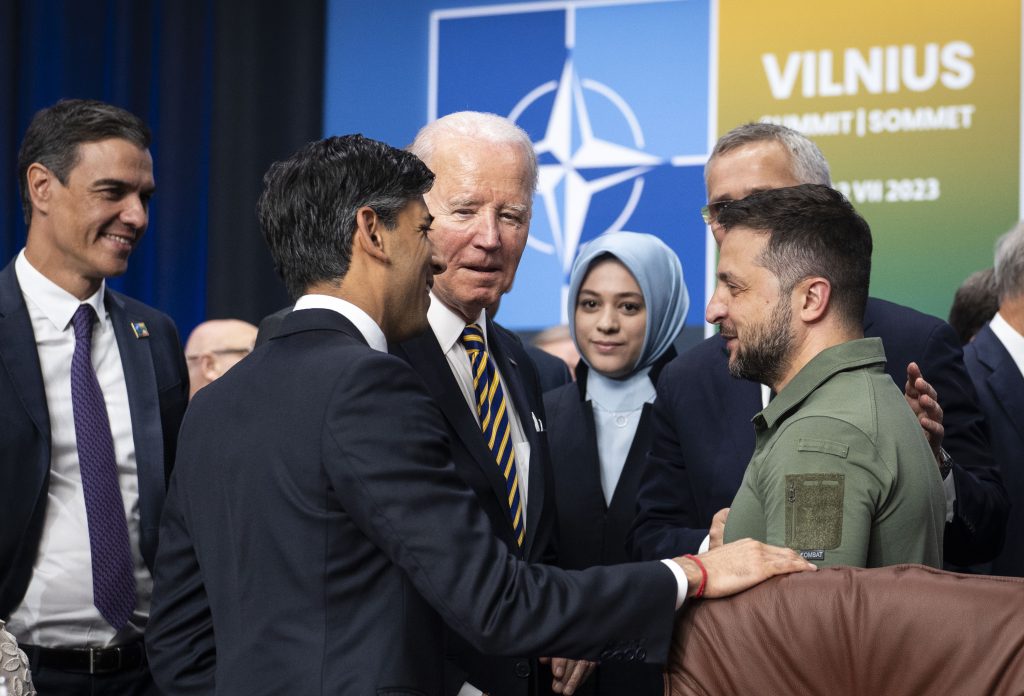Turning of the tide

by Ralph Berry
It’s a pleasure to commend a genuinely good deed by Joe Biden. He resisted great pressure to invite Ukraine to join NATO with membership fixed to a timetable. Instead, he offered Ukraiine long-term military support but in a package that stops short of Article 5 of NATO, which compels all member states to respond to an attack on any one member.
Zelensky was furious. ‘It’s unprecedented and absurd when the time frame is not set neither for the invitation nor for Ukraine’s membership.’ But sceptics in Germany and the US take the view that until it is clear what the peace looks like, current NATO members will not be sure what they are committing to. Others say that it would be madness for NATO to admit a member who is in the middle of a shooting war. Zelensky redoubled his rant: he sees NATO membership as a means of winning his war, NATO thinks it should be a reward for winning it.
Zelensky had gone too far, and chastisement followed next day. Since then, he has moderated his tone, seeing that it is not good to alienate his patrons and paymasters. Greg Wallace, Defence Secretary, urged Zelensky to show some gratitude. Last year, he recalled, he had approached Ukraine after an 11-hour drive only to be presented with a shopping list for fresh military aid. His feelings can be imagined.
After Zelensky’s latest tantrum, Wallace’s composure snapped.
‘The UK is not an Amazon delivery service for military aid.’
Words like this have never before been addressed to the Ukraine leader, who has been granted godlike status in the media. Wallace has spent much time trying to balance the UK defence budget, while Zelensky has no budget, only an endless series of demands for which he will never have to pay. We sometimes overlook the force of sheer irritation in human affairs even at the level of diplomacy.
So a line has been crossed publicly between Ukraine and its keenest supporter in Europe. I do not think the old balance can ever be restored. Britain has enough troubles of its own without shouldering any more of Ukraine’s. These are insoluble. As long as Zelensky refuses even to discuss the only route to peace–partition, with Crimea and a chunk of Russian-speaking Donetsk in exchange for full NATO membership, unbreakable guarantees, and untold wealth–he must hold to the fantasy of the winnable war. The US has made it clear that all doors will be open once the war over. The future of the Ukraine court is not unclouded anyway. Mention is now made of ‘reform’, a subject deeply distasteful to the institutionally corrupt government Zelensky rules over.
It is conceivable that the future is a Korea-style division, in which the two sides go their ways without a formal treaty. Left to themselves, the Ukrainians do not seem capable of reaching a rational solution. Many women and children are comfortably berthed in Europe, and the Ukrainian leaders have no quarrel with the lifestyle they enjoy. Only the PBI fight on, spurred on by hope and local successes.
The way ahead is in Zelensky’s hands.